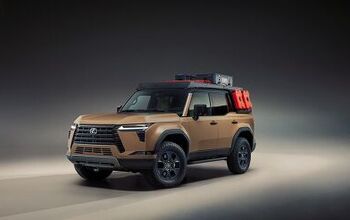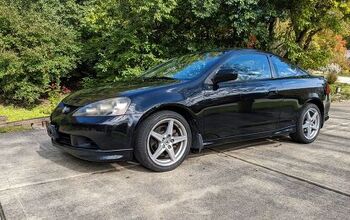2021 Ford Bronco Investigated Over Reports of Engine Failure [UPDATED]
Complaints of “catastrophic engine failure” involving the 2021 Ford Bronco have led to the National Highway Transportation Safety Administration (NHTSA) initiating a Federal Safety Investigation.
The 2.7-liter EcoBoost engine in the Ford Bronco has become a source of investigation after 32 consumers complained of their engines completely failing in normal, everyday driving conditions. The investigation was opened by NHTSA on May 27.
According to NHTSA, “under normal driving conditions without warning the vehicle may experience a loss of motive power without restart due to catastrophic engine failure related to a faulty valve within 2.7 L Eco-Boost Engines”.
Editor’s note: The original headline incorrectly stated that the Bronco had been recalled. This is not the case. We have fixed the headline to more accurately reflect this and we regret the error.
As many as 25,538 Ford Broncos could be affected by this condition, according to papers Ford filed with the federal agency.
The inquiry, which was initially reported by Carscoops and Ford Authority, seeks to determine if Ford will be required to recall the vehicles for engine repairs. The Federal Office of Defects Investigation has received three petitions requesting these investigations on March 17, 18, and 29. The petitions are currently under review by the agency.
“The petitioners alleged that 2021 MY Ford Broncos vehicles are experiencing loss of motive power at highway speeds with no-restart due to catastrophic engine failures,” the federal safety agency has written on its website.
The affected 2.7-liter EcoBoost engine is available as standard equipment on the Wildcat and as an optional engine on all other models except Everglades and Raptor.
Car and Driver is reporting that Ford has told them they are aware of a select number of engines affected and that Ford is cooperating with NHTSA on the matter as well as any consumers who have the 5-year/60,000-mile powertrain warranty.
The 2021 Bronco currently has two safety recalls outstanding: One from October 2021, involving 553 vehicles for potential passenger airbag deployment issues; the other for a misaligned radar module that could cause affected vehicles to not maintain proper distance while using the adaptive cruise control feature.
[Image: Ford]
More by Steven Tobin
Latest Car Reviews
Read moreLatest Product Reviews
Read moreRecent Comments
- 1995 SC If the necessary number of employees vote to unionize then yes, they should be unionized. That's how it works.
- Sobhuza Trooper That Dave Thomas fella sounds like the kind of twit who is oh-so-quick to tell us how easy and fun the bus is for any and all of your personal transportation needs. The time to get to and from the bus stop is never a concern. The time waiting for the bus is never a concern. The time waiting for a connection (if there is one) is never a concern. The weather is never a concern. Whatever you might be carrying or intend to purchase is never a concern. Nope, Boo Cars! Yeah Buses! Buses rule!Needless to say, these twits don't actual take the damn bus.
- MaintenanceCosts Nobody here seems to acknowledge that there are multiple use cases for cars.Some people spend all their time driving all over the country and need every mile and minute of time savings. ICE cars are better for them right now.Some people only drive locally and fly when they travel. For them, there's probably a range number that works, and they don't really need more. For the uses for which we use our EV, that would be around 150 miles. The other thing about a low range requirement is it can make 120V charging viable. If you don't drive more than an average of about 40 miles/day, you can probably get enough electrons through a wall outlet. We spent over two years charging our Bolt only through 120V, while our house was getting rebuilt, and never had an issue.Those are extremes. There are all sorts of use cases in between, which probably represent the majority of drivers. For some users, what's needed is more range. But I think for most users, what's needed is better charging. Retrofit apartment garages like Tim's with 240V outlets at every spot. Install more L3 chargers in supermarket parking lots and alongside gas stations. Make chargers that work like Tesla Superchargers as ubiquitous as gas stations, and EV charging will not be an issue for most users.
- MaintenanceCosts I don't have an opinion on whether any one plant unionizing is the right answer, but the employees sure need to have the right to organize. Unions or the credible threat of unionization are the only thing, history has proven, that can keep employers honest. Without it, we've seen over and over, the employers have complete power over the workers and feel free to exploit the workers however they see fit. (And don't tell me "oh, the workers can just leave" - in an oligopolistic industry, working conditions quickly converge, and there's not another employer right around the corner.)
- Kjhkjlhkjhkljh kljhjkhjklhkjh [h3]Wake me up when it is a 1989 635Csi with a M88/3[/h3]































Comments
Join the conversation
So, we've gone from engines that had lots of little problems with emissions and fuel injection and ECUs to engines that are super reliable until they prematurely catastrophically fail.
This sounds newsworthy: "Over the past nine months, more Wrangler owners have defected to the Bronco than any other brand, with defection rates reaching between 9-10 percent in the first three months of 2022."